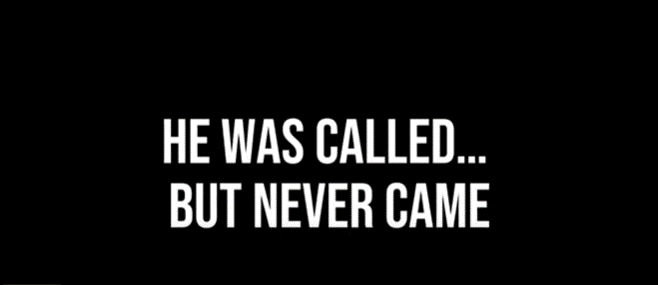Keeping It Real
The Keys to Freedom of mind, soul & body
TRUTH IS RAW
“My God, my God, why have you forsaken me?
Why are you so far from saving me,
so far from my cries of anguish?
My God, I cry out by day, but you do not answer,
by night, but I find no rest.[b]
Yet you are enthroned as the Holy One;
you are the one Israel praises.[c]
In you our ancestors put their trust;
they trusted and you delivered them.
To you they cried out and were saved;
in you they trusted and were not put to shame.”
(Psalms 22. Bible) King David prophesying about the Messiah
Enter through the ‘East Gate’
Last week was Palm Sunday marking a pivotal moment in Christian tradition, commemorating Jesus' triumphant entry into Jerusalem. However, this event was far more than a celebratory parade. He chose to enter not through the city's main gate, but through the East Gate, otherwise known as the "Golden Gate," a symbolic entrance where lambs destined for the Passover sacrifice were brought into the city. This seemingly minor detail is rich with prophetic significance, fulfilling multiple prophecies and serving as a powerful reminder of God's faithfulness and a foundation for our trust in Him.
“And when the chief priests and scribes saw the wonderful things that he did, and the children crying in the temple, and saying, Hosanna to the son of David; they were sore displeased, And said unto him, Hearest thou what these say? And Jesus saith unto them, Yea; have ye never read, Out of the mouth of babes and sucklings thou hast perfected praise?” (Matthew 21:15-16)
Barabbas or the Real Thing?
The name Barabbas means: Son Of The Father.
Etymology: From (1) the noun בר (bar), son, and (2) the noun אב ('ab), father.
In the days leading up to the Passover holiday, tensions were high in Jerusalem. The Roman authorities, led by the governor Pontius Pilate, were on high alert for any signs of insurrection or unrest. It was in this atmosphere that a man named Barabbas found himself facing a death sentence.
Barabbas was a notorious criminal, known for his involvement in a recent uprising against the Romans. He had been charged with insurrection and murder, and the Roman authorities had no qualms about sentencing him to death.
As the Passover festival approached, it was customary for the Roman governor to release one prisoner to the crowds as a gesture of goodwill. Pontius Pilate saw an opportunity to use this tradition to his advantage, and he offered to release either Barabbas or Jesus, a respected teacher and healer, truth teller, prophet, rabbi, who had been arrested on charges of blasphemy.
Getting Hot Up in Here!
The religious leaders in the crowd, however, were determined to see Jesus crucified. They had been threatened by his teachings and his popularity with the people, and they saw him as a threat to their own power and authority.
Despite his initial reservations, Pontius Pilate eventually gave in to the demands of the crowd and ordered the crucifixion of Jesus. The people, whipped into a frenzy by the religious leaders, shouted for Barabbas to be released and for Jesus to be crucified. (John 18:36-40)
As Barabbas was led away from the crowd, he couldn't believe his luck. He had been saved from certain death, all because of the man known as Jesus. But as he watched from a distance as Jesus was beaten, mocked, and crucified, Barabbas couldn't shake the feeling that something was not right. This man, who had done nothing but preach love and compassion, was being brutally murdered while he, a known criminal, was being set free.
The irony is striking: Barabbas, a name meaning "Son of God" in Hebrew, belonged to a man who embodied humanity's flawed approach to liberation – violent revolution. This imposter's actions stand in stark opposition to Jesus's mission, which offered a different kind of freedom: salvation, hope, and the liberation of mind, emotion, and spirit. Where Barabbas sought earthly vengeance through force, Jesus exemplified the principle that vengeance ultimately belongs to God, a power we access not through direct action, but through prayerful trust and surrender. (Mark 15:6-15 Bible)
Imposter replace with: The Way
In the end, it was ironic that Jesus, the only innocent man to ever walk the earth, had been crucified while Barabbas, a known criminal, had been set free. But it was through this sacrifice that all people were offered a chance at mercy and redemption, a chance to pass over from death to life. The world was ready for the arrival of the Redeemer, the Messiah – the Christ, known as the Son of God. He would die as a ransom, securing our eternal freedom after death; to those that believe.
Barabbas, the imposter, represented humanity's attempt to violently overthrow their oppressors. This stands in stark contrast to Jesus' mission: to offer salvation, hope, and freedom of mind, emotion, and spirit from enslavement. The switch had to happen, from the false son of god: Barabbas, to the reaI Son of God who died on the cross; including vengeance is of God, and not for us to handle directly, but indirectly through prayer.
“For the weapons of our warfare are not carnal, but mighty through God to the pulling down of strong holds; Casting down vain imaginations, and every high thing that exalteth itself against the knowledge of God, and bringing into captivity every thought to the obedience of Christ…” (2 Corinthians 10:5-6 Bible KJV)
Tomorrow marks Good Friday, a day of profound reflection for believers worldwide. It is a solemn commemoration of the unjust crucifixion of Jesus Christ, a sacrifice birth through envious and power-hungry religious leaders. These individuals, devoid of true faith and wielding influence over Roman authorities, manipulated the system to condemn "the Way, the Truth, and the Life." Their actions were driven by a desire to maintain their self-serving charade of spiritual authority, a charade that ultimately oppressed and failed the very people they claimed to serve. Although many Jewish leaders did turn and trust Jesus, many of those in higher seats of authority rejected him except Nicodemus. (John 3:1-16) But his death was orchestrated from the beginning of time, and reiterated in the Garden of Eden after the fall:
“And I will put enmity between thee and the woman, and between thy seed and her seed; it shall bruise thy head, and thou shalt bruise his heel.” (Genesis 3:15, Ieovah to the serpent)
I thank Ieovah, the Father, for the boundless mercy shown to humanity (to me & you too), culminating in the gift of God's Son as the ultimate and final sacrifice, atoning for what is called 'missing the mark' the true essence of sin. From the time of Adam, the first man, until the coming of Jesus the last Adam, animal sacrifices served as a temporary covering for humanity's wrongdoings. But this era concluded with the perfect and spotless Lamb of God, mirroring the Passover meal, who died, and was gloriously resurrected three days later, holding the keys to hell and death itself. (Psalms 24:7-10)
Why I Believe
My faith isn't rooted in inherited beliefs or persuasive sermons, or in cultural upbringing or my parents. My unwavering conviction in YHWH, the self-existent God of creation, stems from deeply personal encounters with impossible situations, witnessed through the power of prayer. These experiences have forged an unmovable trust, even in the face of profound sorrow. Like Jesus, who himself faced unanswered prayer, (Matthew 26:39) yet remained steadfast in His purpose: to offer salvation through His own death.
I find strength in knowing I can endure all trials, including the devastating loss of my precious daughter, whose life, despite my fervent prayers, was not granted a miraculous Lazarus-like return. While understanding may escape me, I find comfort in Jesus/Iesu, my advocate, who intercedes on my behalf as I surrender to God's will. My hope rests in the unwavering belief that when my time comes, I will see my baby again with great joy! Until than I will share the incredible supernatural power of a fiercely protective and strong God who loves the lost and is faithful like no other. There is no other power greater than this love that was displayed once and for all when he said, “It is finished” on the cross. What an awesome God. Thank you.
Terry Leifi-Silverstein










